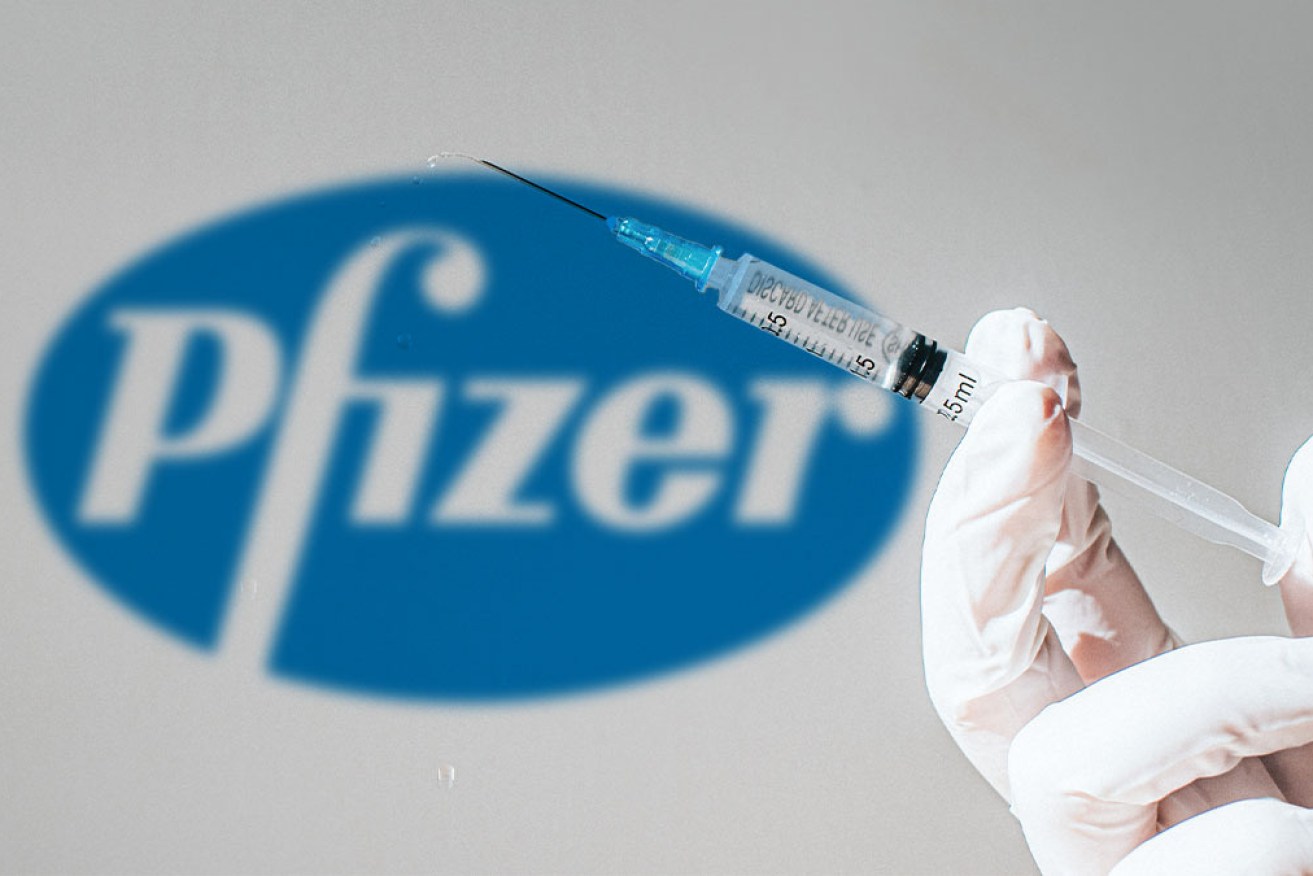‘No specific risk’: TGA approves Pfizer COVID vaccine for elderly Australians


Pfizer's vaccine won't arrive until near the end of the year - and that spells trouble for Scott Morrison. Photo: AAP
Australia’s Therapeutic Goods Administration has backed the Pfizer COVID vaccine for elderly patients, saying there is “no specific risk” for the very old.
The positive development, coming after rigorous assessment from the medical regulator, follows concern over a small number of deaths in “very frail” patients in Norway who got the jab. The TGA said further investigation had found “no causal link” between those deaths, and the vaccine.
“The TGA therefore has concluded that there is no specific risk of vaccination with the Pfizer-BioNTech COVID-19 vaccine in elderly patients,” the regulator said on Tuesday.
Australia’s vaccine strategy says aged care residents will be in phase 1a, the very first priority group for jabs. Those aged 70 and above will be in phase 1b.
Health minister Greg Hunt tweeted that the TGA’s latest advice would “give additional certainty and confidence to Australians.”

Greg Hunt called the TGA the best regulator in the world. Photo: AAP
The TGA, which Mr Hunt and Chief Medical Officer Professor Paul Kelly hail as the best regulator in the world, last month approved Pfizer’s COMIRNATY vaccine for use in Australia.
However, the approval process was thrown a late curveball when Norwegian officials advised there had been 30 deaths among the 40,000 elderly people who received the same vaccine,
“The deaths were recorded among very frail patients, including some who were anticipated to only have weeks or months to live,” the TGA said on Tuesday.
The TGA approved Pfizer’s vaccine 10 days later, but health department secretary Professor Brendan Murphy said further advice would come on how the very elderly or frail would be treated.
“We have obviously been concerned about this. For the very elderly and frail, that will need a very careful clinical decision,” Professor Murphy said on January 25.
“The risks versus the benefits of vaccination need to be carefully considered.”
In an update shared on Tuesday, the TGA said it had consulted with other regulators worldwide to arrive at its position, including the European Medicines Agency and Pfizer itself.
The TGA said the Norwegian cases had been discussed at a recent European risk assessment committee, with the conclusion that “there was not a specific safety concern”, and additionally that “no causal link between vaccination and deaths could be established.”
The regulator says elderly patients can receive the Pfizer vaccine, and that it has placed no upper age limit cap on who can get it.

The TGA backed the Pfizer vaccine for elderly patients. Photo: Getty
However, healthcare professionals will be warned via a product information advisory that they should exercise caution.
“The data for use in the frail elderly (>85 years) is limited … the potential benefits of vaccination versus the potential risk and clinical impact of even relatively mild systemic adverse events in the frail elderly should be carefully assessed on a case-by-case basis,” the TGA said.
The regulator said it would “continue to monitor the safety of COVID-19 vaccines as they are rolled out in Australia and internationally.”
“For all approved COVID-19 vaccines, the existing extensive Australia-wide vaccine and medicine safety monitoring system is being scaled up to include the new vaccine.”
In a Coalition party-room briefing on Tuesday, Prime Minister Scott Morrison reaffirmed Australia’s planned timetable of beginning first vaccinations in late February, and having all people who want a vaccine get one by the end of October.
The TGA is expected to approve the AstraZeneca vaccine sometime in February, with considerations of that jab still ongoing.
Mr Morrison had announced an extra $1.9 billion for vaccine rollout, delivery and logistics on Monday.

Australia’s vaccine roadmap. Photo: Department of Health
The AstraZeneca jabs will be administered at more than 2000 GPs, pharmacies and health clinics nationwide, while the Pfizer vaccine – which requires delicate transport and storage – will be given out at 50 specialist hospital ‘hubs’.
Australia has secured 10 million doses of the Pfizer jab, to be shipped from Belgium. Another 53.8 million from AstraZeneca – 50 million to be made at Melbourne’s CSL, and 3.8 million imported from overseas – are also on contract.
However, major production issues in Europe may delay delivery, while world governments are also moving to implement export restrictions and keep vaccine stocks for themselves. Australia may only receive 1.2 million AstraZeneca doses in coming months.
Australia is only expecting to receive 80,000 doses of Pfizer each week in the initial stages of the late February rollout, with hopes that number will rise quickly.
The overseas AstraZeneca doses are due to arrive in March, while the locally made doses are scheduled to roll off CSL’s production lines in late March.
Mr Hunt and Mr Morrison have stressed the bulk of Australia’s initial vaccine supply is secure, due to it being manufactured onshore in Melbourne and therefore not subject to global shipping or production issues.








